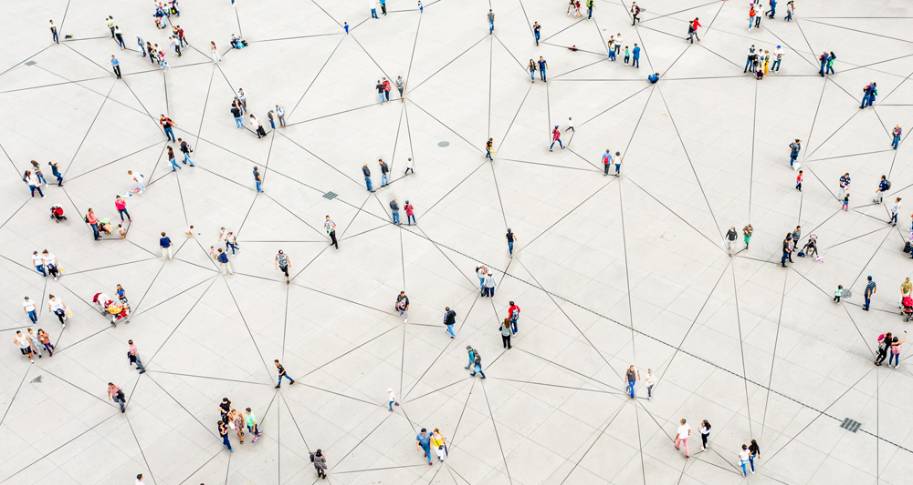Confessions of an Entrepreneur: My Top 10 Predictions for the Next 18 Months

April 29, 2020 | By Mark Zweig
While I realize that none of us has been through a pandemic like the one we are currently experiencing with COVID-19 and the resulting worldwide economic slowdown, as entrepreneurs and small business owners, we have to look ahead.
I’m trying to not be overly optimistic nor pessimistic, and instead just focus on what the future will most likely bring.
Here are my best predictions for what I think will happen in the next 18 months:
- This thing won’t end until there’s either a widely available vaccination or effective treatment, or both.
- The “end” will not be like flipping a switch and everything comes back on.
- Unemployment and reduced incomes for so many people and small business owners will hold up the recovery even after we are “open.”
- If there is a depression, that means certain things will be in demand and other things won’t be.
- “Work from home” is going to continue for a lot of people but many will be glad to get back to the office.
- Open office environments will be a thing of the past.
- We’re going to have a lot fewer meetings.
- Distance learning will be much more commonplace.
- We will have fewer restaurants and the ones left will be focusing on delivery and carry out options.
- Some real estate markets will take a big hit.
Another possibility is fast and accurate antibody testing. We may also need contact tracing. A vaccine is supposedly 18 months out. The treatment may occur sooner. Antibody testing could come soon. And the contact tracing – while many will object on the basis of privacy concerns – could be ready even sooner.
It will happen in some places before others. Travel will certainly be reduced. Big conferences and meetings probably won’t happen for some time. And some businesses will not come back. Some businesses are already gone.
Unemployment right now is probably around 14%. If we do end up with a 30-35% unemployment rate as some are predicting, this slowdown will not be a recession. It will be a depression.
Basic stuff that people need to live will be in high demand. Luxury goods will not be in demand. I wouldn’t want to be in a business that makes or sells luxury goods. Even if people can afford them, our culture may be entering a new period of austerity. On the other hand, industries involved in making and selling food, surface transportation, warehousing and distribution, healthcare, pharmaceutical, on-line education, information technology, bicycling, retirement housing, home gym equipment – these will all be strong.
While it may be fun to work in your pajamas with your dog by your side and have lunch with your kids every day, employers and employees alike will find out efficiencies are lost and communication may be compromised in some cases with people working from home. Not to mention the fact that many adults need to be around other adults during the day to maintain their sanity.
They were already on their way out with recent research indicating that people actually communicate less instead of more in open office environments. But the bottom line is people will want more separation. Density will decrease. No one wants someone else sneezing or coughing into their air space. Some firms may find they actually need more space, not less space as many are predicting.
I have always disliked meetings. I think a lot of other people have felt the same way even if they didn’t express it. Being able to have virtual meetings or phone calls as we are all doing now has proved we can do with a lot fewer meetings. I think that awareness will carry on even after this whole pandemic and our response to it is long over.
Again, so many people in a variety of fields – not to mention all the students who had to finish their semesters virtually – have now experienced the convenience and simplicity of online learning. And we are bound to want to do more online learning in the future even if we don’t have to.
It doesn’t take much to guess what will happen here. Some restaurants are already gone for good – they were too thinly capitalized and barely provided a living for their owners even in good times. More will follow. The PPP plan will help those who were able to navigate the process to get a PPP loan (grant, really) to be able to start back when it is OK to do so.
Others may not. Places like New York City where the prices have already been bid up to crazy levels and have notoriety as COVID-19 “hot spots” will see declines. Other places that were closer to the national norms in price will probably suffer much less. Retail properties will decline in value. Industrial properties and office may be more stable markets than some expect. If unemployment keeps going up over the year ahead, you will start seeing plenty of foreclosures, particularly in affluent “aspirational” suburban areas.
That’s it for now, folks. Let me know your predictions for the next 18 months by emailing me at mzweig@uark.edu!

 Mark Zweig – a leading expert in management and business for the architecture, engineering,
planning, and environmental industry – is president of
Mark Zweig – a leading expert in management and business for the architecture, engineering,
planning, and environmental industry – is president of